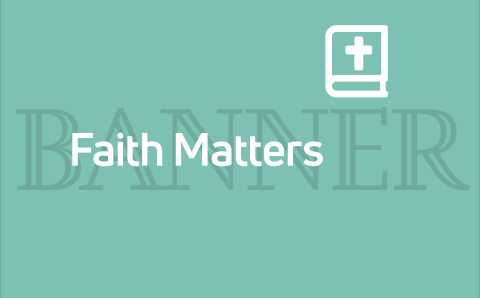Building connections with other believers often happens over food. That’s why I appreciate Jesus’ command to “eat what is offered to you” (Luke 10:8). Sitting at a table piled high with rice and beans, yams, mangos, okra soup, beets, chicken, goat, and plantains, I join with the saints in all places and ages in raising my hearty “Amen!” But before digging in, my host shares a reflection on Psalm 133.
“How good and pleasant it is when God’s people live together in unity! It is like precious oil poured on the head, running down on the beard, running down on Aaron’s beard, down on the collar of his robe. … For there the LORD bestows his blessing, even life forevermore,” he reads.
Psalm 133 invokes the anointing of the bodies and the garments of the Aaronic priesthood for service in the tabernacle where the Lord dwelt among his people (Ex. 29). Admittedly, the image is a little weird. But the message my host shares is that the togetherness, connectedness, and unity of God’s people are like the warm and eternal life-giving glow of God’s presence.
In the past few issues of The Banner, we’ve been reflecting in this column on what it means to be a denomination. Article 39 of Church Order reminds us of the fourth and final reason for our congregations to exist together as a denomination: to “allow for a healthy and sustained connection to the broader church.”
Our ecumenical creeds and our Reformed confessions speak of this as well. The Nicene Creed confesses “one holy, catholic, and apostolic church.” The Heidelberg Catechism states that God “gathers, protects, and preserves for himself a community chosen for eternal life and united in true faith” (Q&A 54). Deepening our connections to the broader church is a blessing, and being part of a denomination allows us to do that in an organized and systematic way.
For example, as a community of churches, the Christian Reformed Church has an Ecumenical and Interfaith Relations Committee that stewards relationships with 53 denominations around the world (crcna.org/eirc). The CRCNA has “church in communion” relationships with 24 of these denominations, which allows for the sharing of sacraments and pulpits, the exchange of members and ministers, and the sharing of projects and ministry. The CRCNA has another 19 relationships of “cooperation,” which focus primarily on shared ministry and mission projects.
These CRCNA connections to the broader church strengthen local ministry. Did you know that more than 40 Reformed Church in America pastors serve in the CRCNA, and over 20 CRCNA pastors serve in the RCA? Every year, five to 10 pastors from other connected denominations also take calls to CRCNA congregations. We are blessed by their leadership.
The CRCNA also has a small group of “union congregations.” These are single congregations that share affiliation with two denominations according to Church Order article 83g-f. Most of these congregations (six organized and three emerging churches) are dually affiliated with the CRC and the RCA, but there are now some CRCNA congregations affiliated with the Alliance of Reformed Churches or the Kingdom Network as well.
In addition, the CRCNA is part of ecumenical networks, whether nationally in Canada and the U.S. or globally. These “healthy and sustained connections to the broader church” provide opportunities for fruitful ministry, advocacy, shared vision, and a unified voice within and outside North America.
And through missions, the CRCNA is in relationship with ongoing ministries around the world. In 2024, synod ratified a church-in-cooperation relationship with the Christian Reformed Church in Liberia because of the relationship between several CRCNA congregations in Iowa and Oregon with brothers and sisters in Liberia. Our CRCNA missionaries with Resonate Global Mission are connected to denominational partners in Japan, Nigeria, the Philippines, the Dominican Republic, and many other places. Sometimes pastors from these international denominational partners even come to North America to serve CRCNA churches (see this story).
Our 49 CRCNA classes (regional bodies) play an additional important role in fostering “healthy and sustained connections to the broader church.” Such regional connections result in shared outreach, evangelism, and diaconal ministries that concretely impact cities, towns, and rural communities and serve as a powerful witness to nonbelievers. Many of our CRCNA pastors are blessed to participate in networks of local clergy from different denominations.
Whether it is sharing a table, a ministry project, or simply a cup of coffee, “healthy and sustained connections with the broader church” are a way that we CRC folks mysteriously participate in the life and work of the Trinity, who is Father, Son, and Holy Spirit, three persons in one indivisible God. I admit the anointing oil running down Aaron’s beard and vestments sounds a little weird to my modern Protestant ear. But enjoying the warm, life-giving glow of the Lord’s presence with brothers and sisters from every nation around the world is transformational. And the food is really good too.
About the Author
Rev. Zachary King is the general secretary of the CRCNA. He is a member of Cascade Fellowship Christian Reformed Church in Grand Rapids, Mich.









